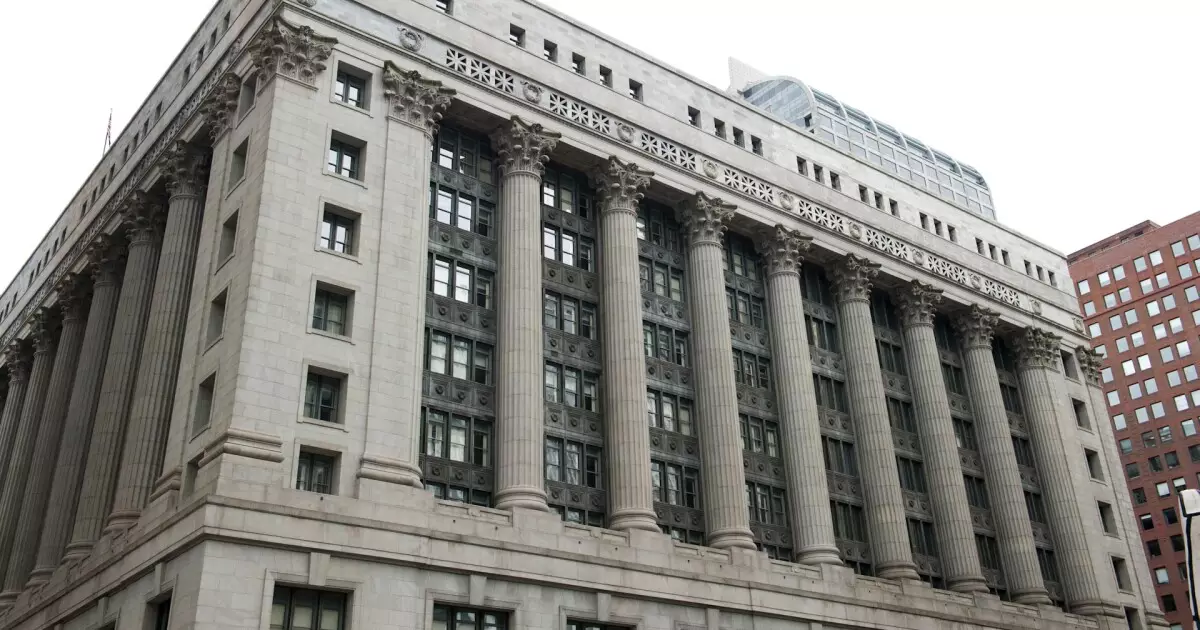In a striking move, the Chicago City Council has expressed its disapproval of Mayor Brandon Johnson’s proposed fiscal 2025 budget, primarily by rejecting a hefty $300 million property tax increase. This decision, made unanimously during a recent special meeting, underlines the growing tensions between the City Council and the Johnson administration regarding how to manage a staggering $982 million budget deficit. The urgency of the situation is compounded by the recent warning from Kroll Bond Rating Agency, which placed Chicago’s general obligation bond rating on “Watch Downgrade,” signaling potential future financial instability if alternative solutions to balance the budget are not identified swiftly.
The rejection of the property tax increase comes at a pivotal moment when the city must formulate a plan to meet statutory requirements set for December 31, 2024. As pointed out by Linda Vanderperre, Senior Director at KBRA, there is an expectation for collaboration between the mayor’s office and the City Council, an expectation that seems to loom heavier now given the rejection of a significant source for potential revenue.
Political analysts suggest that Johnson’s initial promise of not raising property taxes has created a paradoxical situation for his administration. According to Howard Cure, a municipal bond expert at Evercore Wealth Management, the pressure facing Johnson to maintain his commitments may hinder his political leverage. The council’s swift disapproval arguably illustrates the concern among its members about the city’s ability to manage its budget responsibly without placing an additional burden on Chicagoans through unaffordable tax increases.
Interestingly, Cure points out that while the focus has been predominantly on property taxes, the more significant elephant in the room is the city’s pension obligations. It is widely acknowledged that Chicago’s substantial pension liabilities carry the biggest risk to the city’s financial health, and any cuts to the predetermined pension contributions could trigger devastating effects on the city’s overall creditworthiness.
Furthermore, the ongoing fiscal challenges facing Chicago aren’t only about annual budget shortfalls; the reliance on one-time revenue solutions risks culling from already strained funds. The Mayor’s fiscal strategy, which leans towards a precarious mixture of 80% structural solutions balanced with a 20% reliance on one-off fixes, is under scrutiny by credit rating agencies that view it as a recipe for deeper financial trouble.
The Civic Federation of Chicago has recommended diversifying revenue streams instead of solely relying on property taxes, suggesting a series of alternative measures that could provide much-needed income to the city. Examples include proposals for implementing a citywide income tax, a tax on various services, and a financial transaction tax. There are also short-term solutions on the table, such as increasing fees for city services and legalizing video gaming, which, while less impactful in the long run, could help close immediate fiscal gaps.
This growing inventory of suggestions from fiscal watchdog groups demonstrates a critical need for innovative strategies to alleviate the financial strain. However, most of these proposals require changes to state laws, which could entail lengthy legislative processes that the city may not be able to afford given its pressing timeline.
The ramifications of budgetary decisions extend beyond mere financial data; they impact public services that citizens rely upon. For instance, potential staff cuts in pivotal areas such as healthcare due to budgetary strain could compromise the effectiveness and responsiveness of public health services. The city’s police force, already under federal scrutiny, also faces staffing challenges exacerbated by the budget crisis, which raises concerns about maintaining law and order.
In addition, the competition for healthcare professionals has intensified, with the private sector offering lucrative packages that the city struggles to match. This staffing shortage, compounded by persistent vacancies, could further undermine the effectiveness of public services in a time of urgent need.
The unfolding budgetary crisis in Chicago is not just a fiscal issue; it is a reflection of the broader challenges that urban governance faces in a reality of dwindling resources and rising demands. Mayor Johnson and the City Council must prioritize finding mutually agreeable solutions that balance fiscal responsibility with the need for adequate public service provision. The path forward requires a collaborative approach that weighs immediate fixes against long-term sustainability, ultimately striving to foster a resilient financial future for Chicago. The stakes are high—not just for current governance but for the future of the city and its residents.

